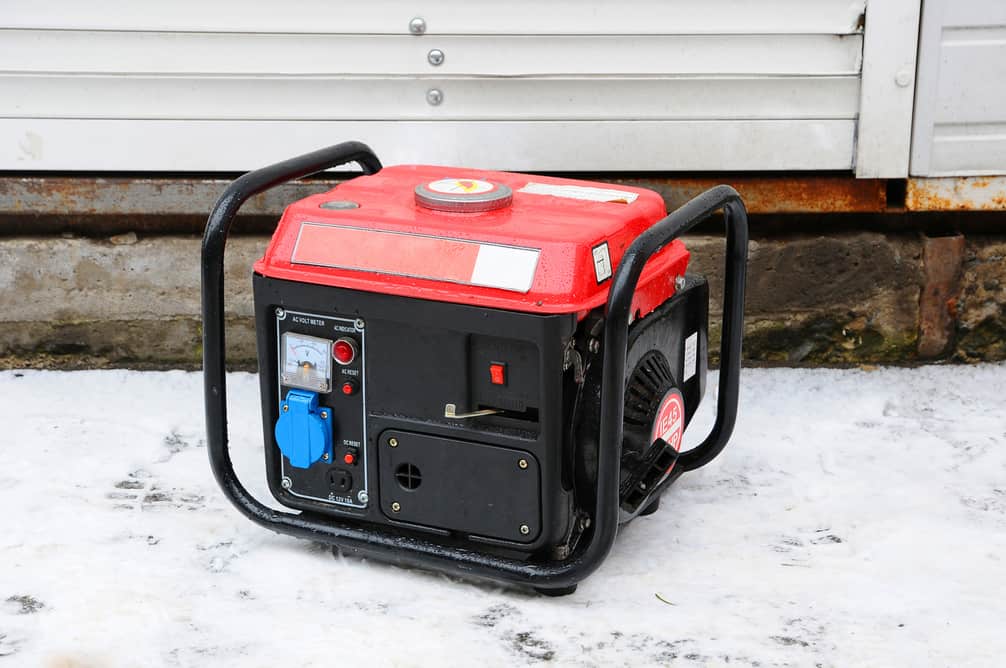Portable generators are invaluable tools for providing power in various situations, from outdoor events to emergency backup during outages. However, their usefulness can be hampered by high fuel consumption.
This guide explores strategies to maximize fuel efficiency in portable generators, helping you save money and reduce environmental impact while ensuring a reliable power supply.
Understanding Generator Fuel Consumption
Before diving into efficiency strategies, it’s crucial to understand the factors affecting fuel consumption in portable generators. These include the generator’s size, load capacity, and the type of fuel used. Calculating wattage needs for portable generators is an essential first step in optimizing fuel efficiency. By accurately assessing your power requirements, you can choose a generator that matches your needs without unnecessary overcapacity.
Regular Maintenance for Improved Efficiency
Regular maintenance is one of the most effective ways to maintain fuel efficiency. This includes:
- Oil Changes: Regular oil changes reduce engine friction, improving overall efficiency.
- Air Filter Replacements: Clean air filters ensure optimal air-fuel mixture, enhancing combustion efficiency.
- Spark Plug Checks: Well-maintained spark plugs contribute to complete fuel combustion.
Using genuine replacement parts during maintenance can significantly impact performance and efficiency.
Optimal Loading Practices
Operating your generator at the right load is crucial for fuel efficiency:
- Avoid overloading, which can strain the engine and increase fuel consumption.
- Prevent underloading (running at less than 50% capacity), which can lead to inefficient fuel use and carbon buildup.
- Aim to balance power needs with generator capacity for optimal efficiency.
Proper Generator Operation
Correct operation procedures can significantly impact fuel efficiency:
- Follow proper starting and stopping procedures.
- Allow for adequate warm-up and cool-down periods.
- Ensure the generator operates in a well-ventilated area with appropriate temperature conditions.
For more insights on proper generator operation, check out the basics of portable generators explained.

Fuel Quality and Storage
The quality of fuel used in your generator directly affects its efficiency:
- Use high-quality fuel appropriate for your generator model.
- Store fuel properly to prevent degradation.
- Consider using fuel stabilizers for long-term storage to maintain fuel quality.
Advanced Efficiency Techniques
For those looking to optimize their generator’s performance further:
- Remove carbon deposits regularly to maintain engine efficiency.
- Optimize coolant temperature for better thermal efficiency.
- Utilize smart controls and automation features if available on your model.
Choosing the Right Generator
Selecting an appropriately sized and fuel-efficient generator is crucial:
- Choose a generator that matches your power needs without excessive overcapacity.
- Consider fuel-efficient models that incorporate advanced technologies.
- Explore alternative fuel options like propane or natural gas, which can offer efficiency benefits in certain situations.
Load Management Strategies
Effective load management can significantly improve fuel efficiency:
- Prioritize essential equipment during operation.
- Use energy-efficient appliances to reduce overall power demand.
- Implement load-reducing or time-shifting techniques during peak usage periods.
Monitoring and Tracking Fuel Consumption
Regular monitoring can help identify areas for improvement:
- Use fuel consumption monitors if available.
- Keep detailed logs of usage and efficiency.
- Analyze this data to identify patterns and areas for potential optimization.
Environmental Considerations
Improving fuel efficiency not only saves money but also reduces environmental impact:
- Lower fuel consumption directly translates to reduced emissions.
- Consider exploring eco-friendly generator options that incorporate the latest efficiency technologies.
Conclusion
Maximizing fuel efficiency in portable generators requires a multifaceted approach, from regular maintenance and proper operation to advanced techniques and smart load management. By implementing these strategies, you can significantly reduce fuel consumption, save money, and minimize environmental impact while ensuring reliable power supply.
Keep in mind that improving fuel efficiency is an ongoing process. Regularly review your generator’s performance, stay informed about new technologies, and be willing to adapt your practices as needed. With consistent effort and attention to detail, you can achieve optimal fuel efficiency from your portable generator, enhancing its value and reliability in various applications.
FAQ
How can I quickly tell if my generator is running less efficiently than before?
Watch for signs like higher fuel use, extra smoke, hotter operation, or trouble keeping up with normal power needs. New engine noises or frequent stalling can also signal efficiency issues.
What’s the first thing I should check if my generator’s fuel use suddenly spikes?
Check the air filter and spark plug first—dirty or worn parts are common culprits. Make sure you’re using fresh, correct fuel and not overloading the generator. Look for leaks or low oil if those are fine.
How should I store generator fuel to keep it efficient and safe?
Keep fuel in a cool, dry spot using approved containers. Add a stabilizer if storing for more than a month. Rotate your supply so you use the oldest fuel first, and don’t let fuel sit in the generator for long periods.
Can I use alternative fuels for better efficiency or lower costs?
Some generators can run on propane or natural gas, which may burn cleaner or more efficiently than gasoline. Always check your manual before switching—using the wrong fuel can damage your generator or void the warranty.
Does altitude or temperature affect my generator’s fuel efficiency?
Yes. Generators burn more fuel at high altitudes or in extreme temperatures because the engine works harder. If you use your generator in these conditions often, ask the manufacturer about tuning options.
What are “smart controls” and do they really save fuel?
Smart controls automatically adjust engine speed and output to match your power needs, saving fuel during low-demand periods. If your generator supports this, it can help reduce fuel use and engine wear.
How often should I check for carbon buildup or dirty components?
Check for carbon buildup and dirty filters every season or after about 100 hours of use. Heavy use or poor fuel quality may require more frequent checks. Clean components help maintain efficient fuel use.
Are there tools or apps to help me track generator fuel efficiency?
Yes. Some generators have built-in fuel monitors, and you can buy aftermarket meters or use smartphone apps to log runtime, fuel use, and maintenance. Tracking this data helps you spot trends and optimize performance.
Will using energy-efficient appliances help my generator’s fuel use?
Definitely. Appliances that use less power let your generator run at an optimal load, reducing unnecessary fuel consumption. Upgrading to energy-efficient devices can stretch your fuel supply and lower costs.
Should I upgrade to a newer, more efficient generator or keep maintaining my old one?
If your current generator is reliable, regular maintenance can keep it efficient. But if you use it often or fuel costs are high, upgrading to a newer, fuel-efficient model—especially one with inverter or eco-mode—can save money over time.

Leave a Reply